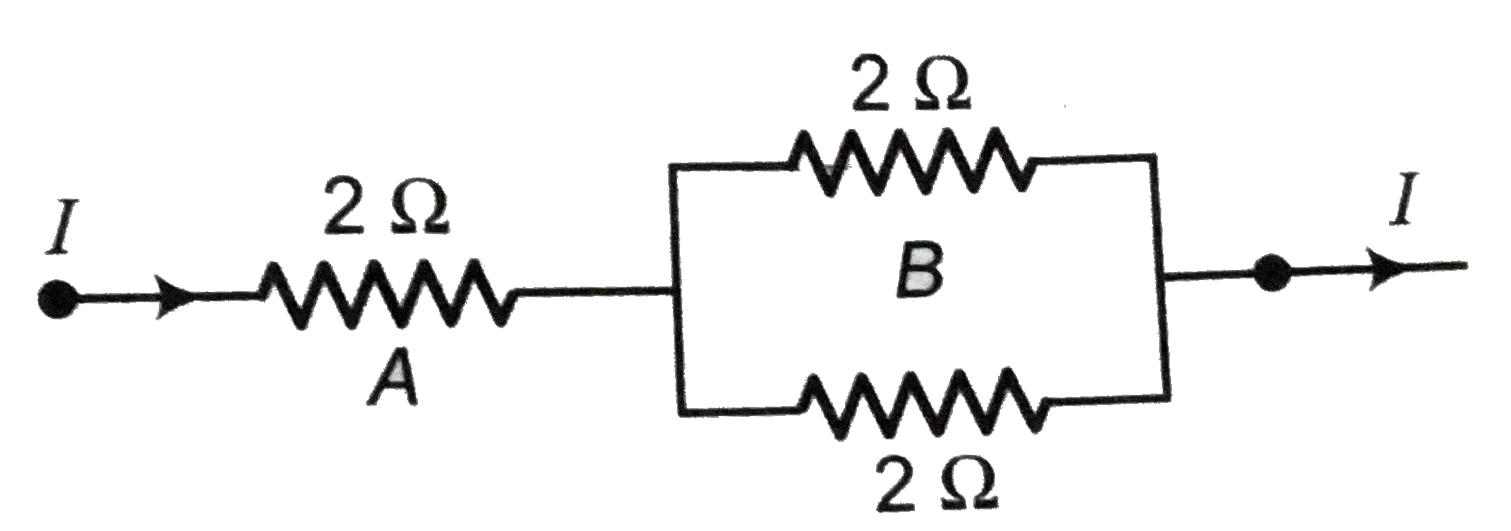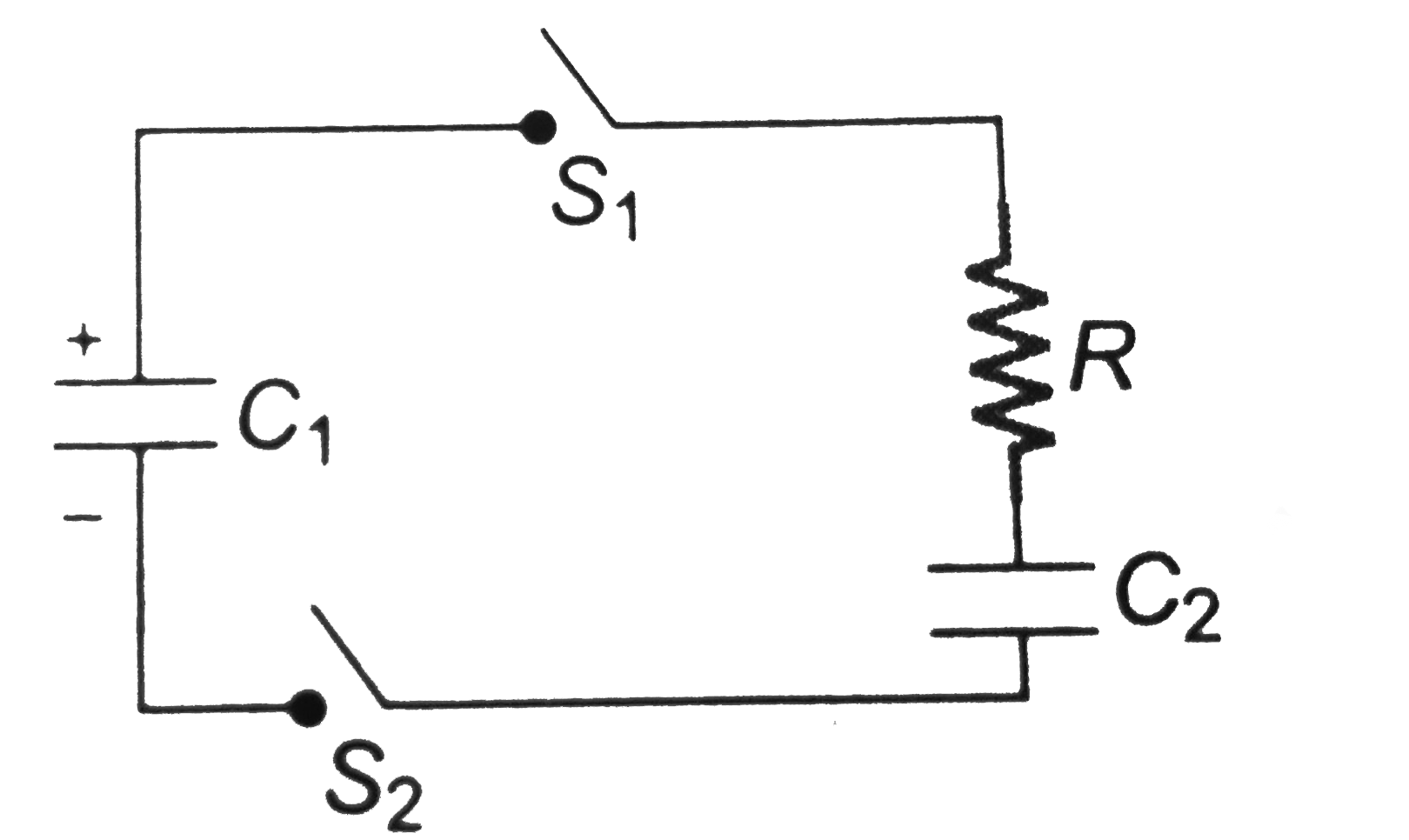A given resistor cannot carry currents exceeding 20A, without exceeding its maximum power dissipaation ratings . By forced air cooling suppose that we increase the rate at which heat can be carried by a factor of 2. Now the maximum current that the resistor can carry is
10A
20√2A
30√2A
40A
The correct Answer is:B
Heat produced ∝I2 , initial heat produced =k(20)2 , final heat produced =2k(20)2. If final current is I' , then
kI'2=2×k×(20)2orI'=20√2A
Topper's Solved these Questions
- HEATING EFFECT OF CURRENTBOOK - CENGAGE PHYSICSCHAPTER - HEATING EFFECT OF CURRENTEXERCISE - Multiple Correct
5 Videos
- HEATING EFFECT OF CURRENTBOOK - CENGAGE PHYSICSCHAPTER - HEATING EFFECT OF CURRENTEXERCISE - Assertion - Reasoning
6 Videos
- HEATING EFFECT OF CURRENTBOOK - CENGAGE PHYSICSCHAPTER - HEATING EFFECT OF CURRENTEXERCISE - Subjective
8 Videos
- GRAVITATIONBOOK - CENGAGE PHYSICSCHAPTER - GRAVITATIONEXERCISE - Question Bank
39 Videos
- INDUCTANCEBOOK - CENGAGE PHYSICSCHAPTER - INDUCTANCEEXERCISE - Concept Based
9 Videos
Similar Questions
A 2 W carbon resistor is color coded with green, black, red and brown respectively. The maximum current which can be passed through this resistor is :
View SolutionThree 2Ω resistors, A, B and C are connected as shown in figure. Each of them dissipates energy and can with stand a maximum power of 18 W without melting. Find the maximum current that can flow through the three resistors ?

View Solution
Knowledge Check
You are given several identical resistors each of value 10Ω and each capable of carrying a maximum current of 1 A. It is required to make a suitable combination of these to resistances to produce a resistance of 5Ω which can carry a current of 4 A. The minimum number of resistors required for this job is
A4B8C10D20Three 10Ω,2W resistors are connected as in Fig. 7.34. The maximum possible voltage between points AandB without exceeding the power dissipation limits of any of the resistors is
 A5√3VB3√5VC15VD53V
A5√3VB3√5VC15VD53VA straight conductor carrying a current is kept in a uniform magnetic field so as to experience maximum force. If now the conductor is turned in its own plane such that the force acting on it is half of the maximum force, then the angle made by the conductor in the final position with respect to the field is
A60∘B45∘C30∘D90∘
Study the following principle and answer the question.
A force is excreted on a current-carrying conductor placed in a magnetic field. The direction of this force depends on both the direction of the current and the direction of the magnetic field. This force is maximum when the direction of the current is perpendicular to the direction of the getic field.
By which law can we determine the direction of the force excreted on the current-carrying conductor?
View SolutionAn AC source rated 220 V, 50 Hz is connected to a resistor. The time taken by the current to change from its maximum to the rms value is :
View SolutionThree 2Ω reistors , A,BandC, are connected as shown in (Fig. 3.44). Each of them dissipates energy and can withstand a maximum current that can flow through the three resistors ?
 .
.
View SolutionStudy the following principle and answer the question.
A force is excreted on a current-carrying conductor placed in a magnetic field. The direction of this force depends on both the direction of the current and the direction of the magnetic field. This force is maximum when the direction of the current is perpendicular to the direction of the getic field.
In which electrical equipment is this principle used?
View SolutionThe capactor C1 in the figure initially carries a charge q0. When the i switch S1 and S2 are closed, capacitor C1 is connected to a resistor R and a second capacitor C2, which initially does not carry any charge.
(a) Find the charges deposited on the capacitors in steady state and the current through R as a function of time.
(b) What is heat lost in the resistor after a long time of closing the switch?

View Solution
